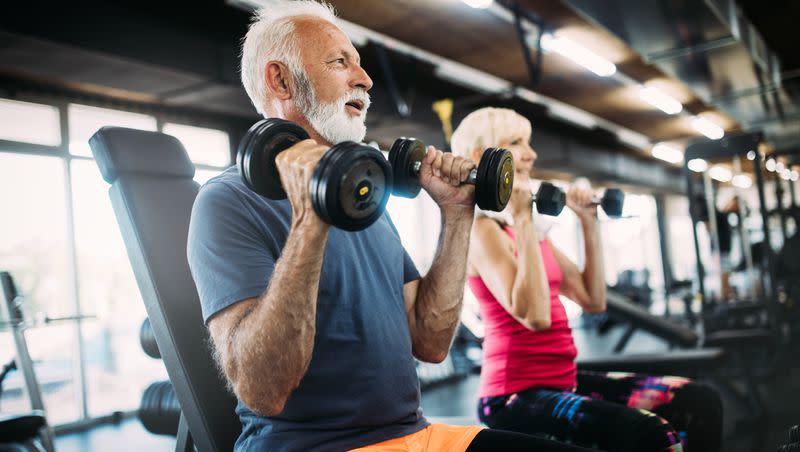Why elderly people should lift weights — new study shows encouraging benefits

Nowadays, lifting weights is so easy, your grandma can do it.
A new study published in the Human Kinetics Journals studied resistance training exercises for older individuals between their sixties and nineties. Researchers noticed significant improvements in the participants during a twelve-week supervised training period.
“It is often assumed that the oldest old, or, say, people past the age of 80, are less likely to be able to gain muscle mass and strength,” Luc van Loon, a professor at Maastricht University, and senior author of the study told The Washington Post.
But that didn’t stop van Loon from furthering his research, “‘Muscle tissue is constantly turning over as long as we live,’ he said, so why shouldn’t an octogenarian’s muscles strengthen and grow as well as a youngster’s of 65?”
The study's results found that individuals aged 85 and older gained relatively more strength and muscle mass compared to the younger group between their 60s and 70s. On average, they increased their muscle mass by 11% and strength by 46%, in contrast to the younger volunteers, who added 10% more muscle and 38% more strength.
Related
New study shows how to extend life expectancy by an entire decade. Here’s what you should know
How walking can improve your health and increase your lifespan
What happens to muscles as you age?
As you age, several changes occur in your muscles, impacting strength, endurance and overall functionality. One of the most significant changes is the loss of muscle mass, known as sarcopenia. Starting around the age of 30, muscle mass typically begins to decline gradually. This process accelerates after the age of 50 and becomes more pronounced in later years.
“Sarcopenia has been linked to type 2 diabetes, high blood pressure, and obesity. It may increase the risk of heart disease and stroke, and take years off your life,” per WebMD. “It also jeopardizes your freedom to live on your own, not to mention traveling, spending time with grandkids, or doing so many of the things that make older adulthood joyful and fulfilling.”
Other natural changes that occur during the aging process but that can be improved with exercise include, according to Better Health:
Loss of strength.
Reduction in muscle fibers.
More challenging ability to contract muscles.
Difficulty in toning muscles.
How to maintain muscle as you age
The American College of Sports Medicine recommends that people of all ages should preserve or enhance muscle strength and endurance by engaging in activities at least two days per week. Without strength training, seniors risk the chance of having poor balancing and injuring themselves from falling.
“In fact, falls and fractures are one of the main causes for hospitalization for seniors. When this happens, it robs seniors of their active and independent lifestyle. So in addition to cardiovascular activities, seniors should consider weight training,” per Weirton Medical.
Related
Weightlifting as an exercise for older adults inherently comes with certain risks. There is a heightened likelihood of injury, especially if correct posture and methods are not followed. Seeking advice from a healthcare expert before beginning an exercise regimen is essential. Engaging with a certified trainer and starting with lighter weights is also important to minimize risks.
When They Get Older, a UK publication that gives advice on how to help relatives and friends as they age, recommended the following tips when beginning strength training:
Warm up first.
Focus on correct form and technique.
Begin with lighter weights.
Wear proper exercise gear.
Use a weightlifting belt for support.
Listen to your body.
“You are never too old to start exercising,” van Loon told The Washington Post. Weight training for seniors not only enhances strength but can also boost motivation and self-confidence, encouraging them to maintain their exercise routine.

